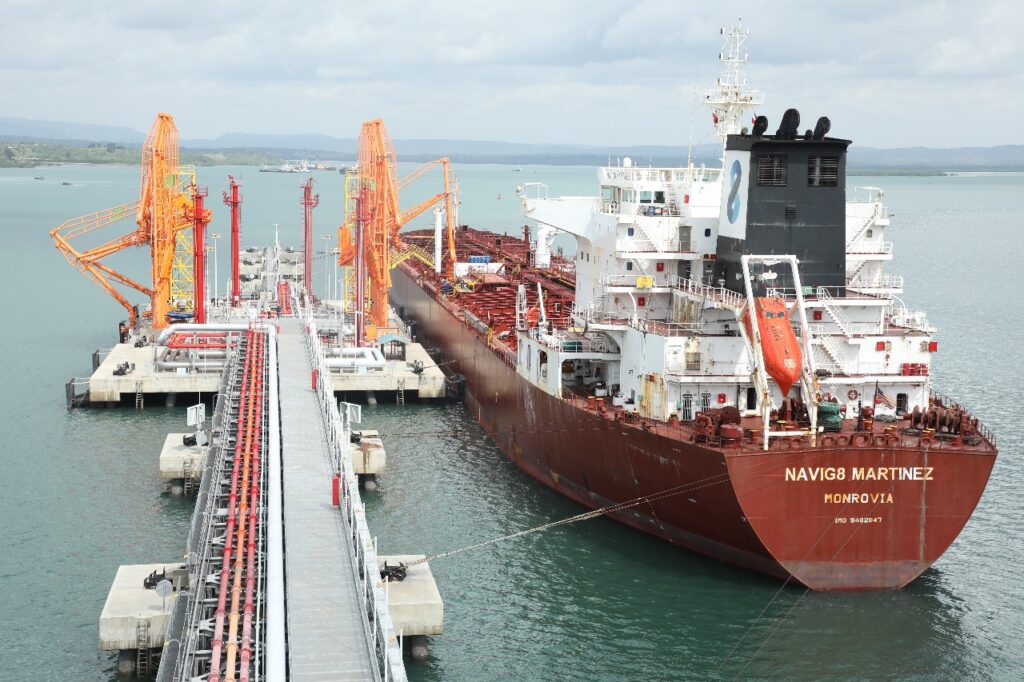Hardly a week after the Uganda National Oil Company (UNOC) celebrated the arrival of its first direct fuel imports, a significant hurdle has emerged.
The Kenyan authorities have imposed a $40 million (sh148.4 billion) storage fee on Vitol Bahrain terminal (VTTI Kenya), a private firm responsible for holding UNOC’s imports at the Port of Mombasa.
Implications of the Storage Fee
These storage terminals are among the largest in the region and the only privately-owned facility connected to the Kenyan Pipeline Company, which serves Uganda.
The terminal was chosen to store all of UNOC’s fuel before being transported to Kisumu and Eldoret terminals via the Kenyan pipeline, where Ugandan oil marketing companies would collect it for sale.
Financial Impact
The sudden imposition of the storage fee is seen by Ugandan authorities as an attempt to make UNOC’s planned imports more expensive.
Although the $40 million fee is not directly imposed on UNOC, VTTI Kenya is expected to pass the burden onto UNOC, significantly increasing the cost of imports for dealers, who would then have to raise pump prices.
The storage fee ensures that Kenyan Customs can collect all import duties, taxes, fines, or penalties from the surety company (Vitol) if they cannot collect the fee from the importer.
Government Protests
The Ugandan Ministry of Energy has protested the new fee imposed by Kenyan authorities. Energy Minister Ruth Nankabirwa described the introduction of the storage fee as a deterrent move, stating, “It is not in the spirit of the East African Community.”
Nankabirwa noted that the increased storage fee would force UNOC to raise fuel prices, preventing Ugandans from benefiting from the reduced pump prices as planned.
She emphasized that pump prices would remain manageable if UNOC did not incur additional costs at the ports.
Ministerial Engagement
The minister assured the public that she would engage her Kenyan counterpart, Davis Chirchir, the Cabinet Secretary for Energy and Petroleum, to address the matter.
Nankabirwa also used her Twitter account to explain the impact of UNOC’s import deal on current fuel pump prices in Uganda.
UNOC’s Recent Imports
Last week, UNOC commenced its direct imports to Uganda with the arrival of two ships carrying a total of 138,000 metric tonnes of fuel products at the Kipevu Oil Terminal II in Mombasa.
This included the Navig8 Martinez ship with 58,000 metric tonnes of petrol and the Sinbad with 80,000 metric tonnes of diesel.
UNOC plans to import at least 180,000 metric tonnes of petroleum products monthly to meet the country’s needs.
Impact on Revenue
It remains unclear how much revenue UNOC is expected to generate from the fuel import deal.
However, senior officers at the national oil company said that the anticipated revenue is significant and will help reduce UNOC’s dependence on national funding for its operations.
Under the fuel imports deal, UNOC has the opportunity to bring home approximately $30 (about sh108,849) per cubic metre, which has long been shared within the supply system in Kenya.
According to the plan, part of this revenue will be retained by UNOC, and another portion will trickle down into the market.
Exploring Alternatives
Despite securing the Mombasa deal, Uganda is still negotiating with Tanzania to ensure that part of its fuel imports are received via Dar-es-Salaam Port.
The Ugandan government is discussing potential incentives from Tanzania as part of the deal.
Currently, Tanzania primarily handles cargo for Burundi and neighbouring countries south of Tanzania.
Evaluating the Tanzania Route
Irene Bateebe, the Energy Ministry Permanent Secretary, confirmed that the Tanzania route is still under evaluation.
“It has always been our alternative supply route. The Tanzania route mainly provides security for our supply. We are still negotiating with Tanzania on several incentives,” she said.
Background Agreements
In May, Uganda and Kenya signed key agreements enabling UNOC to utilize the Kenya Pipeline Company facilities to import petroleum products into the country.
These agreements included the tripartite and transport and storage agreements, both intended to facilitate the importation of petroleum products through Kenya.
The tripartite agreement was signed between the governments of Uganda and Kenya and UNOC.
This agreement provides a framework for the two countries to support and enable UNOC to perform the task of being the sole importer of Uganda’s petroleum products.
The transport and storage agreement outlines the roles and responsibilities of UNOC and the Kenya Pipeline Company in transporting the imported products through the Kenyan pipeline to Uganda.

